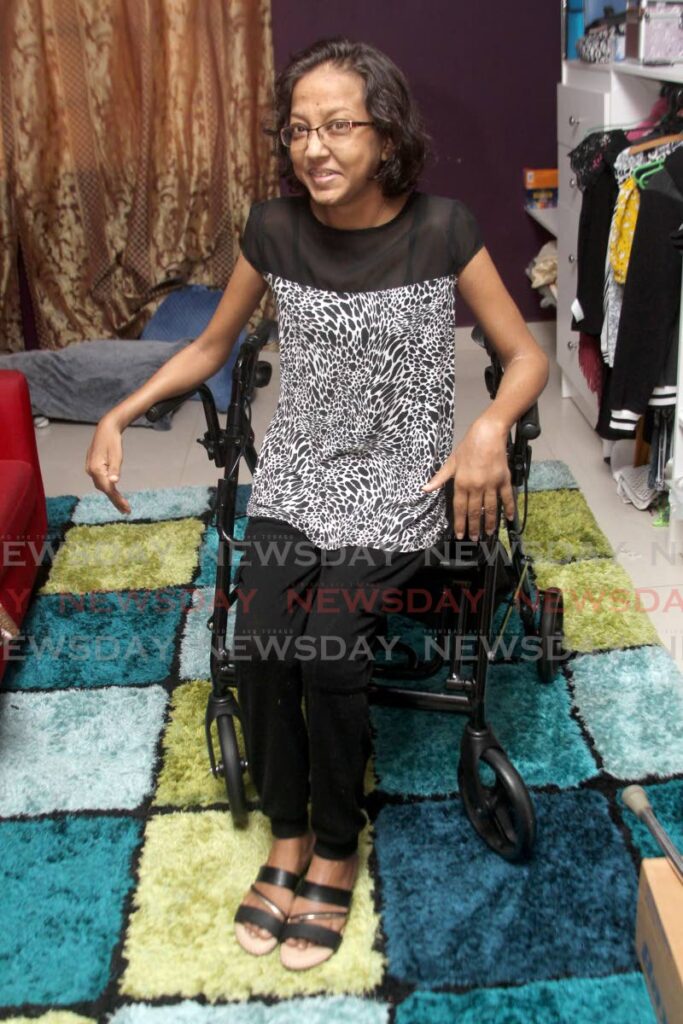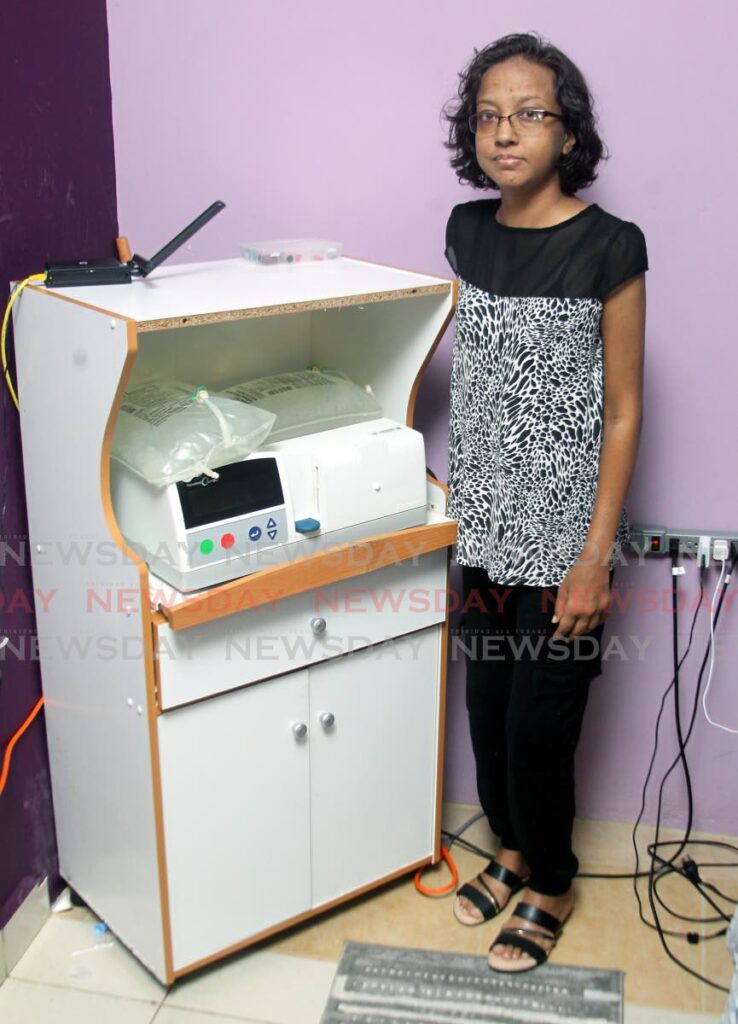Sarita Gangapersad needs a kidney

Nightly dialysis treatments leave Sarita Gangapersad coughing and lethargic in the morning. A combination of kidney failure and lupus have left the 36-year-old dependent on the support of family. She is appealing to members of the public who are willing to donate a kidney to reach out to be tested.
Lupus is a disease that occurs when your body's immune system attacks your own tissues and organs. Speaking to Newsday by phone, Gangapersad said she has had lupus since she was 15, but went into remission while still a teenager and was able to move on.
“I got married, graduated school, got a job, tried to get pregnant and then realised the lupus was affecting my health once again. And then the marriage didn’t work out because of my illness and the added stress of my job meant I had a lot of added stress in my life, and the lupus came back in full force.”
The Cumuto resident was diagnosed with renal failure at 30 and was put on daily dialysis while she looked for a compatible person for a kidney transplant.
“The dialysis, which I do every night, pulls all excess fluid out of the body, so in the morning I wake up dry and coughing. I do peritoneal dialysis, where the doctors placed a catheter in the stomach area and they give you a dialysis fluid that goes into tummy, cleanses the body from there and then pulls out the fluid afterwards.

"It’s a gentler form of dialysis, from my experience, as opposed to haemodialysis, where they insert the catheter into your neck or arm and it pulls the blood out, cleanses it and puts it back in.
"I plug into the machine at night and it runs automatically while I’m sleeping, and when I wake up in the morning it’s done and I just unplug it and that’s it. I can go ahead and do what I want to do during the course of the day without being hooked up to a machine. My family helps me with maintenance and switching of the bags, etc.”
Usually, close family members are the best donors to provide a match, and one of her siblings was compatible.
“After about five years of testing at Mt Hope, which was slowed down by covid19, we found out my brother and I were compatible.
"We went into surgery in April this year, and in the operating theatre they realised he was having an allergic reaction to one of the anaesthetics. They had to make an immediate decision to save his life and had to stop the procedure. If they had gone on, it would have been fatal for him, so they stopped everything.
"It was devastating to reach to that point and then hear we couldn’t do the transplant any more.”
Gangapersad said her brother was no longer able to donate his kidney to her.
“It puts me in a predicament where I no longer had my donation, and I need to get the kidney. It’s five years I’ve been on dialysis, and that treatment can only go so far.
"I had an infection shortly after trying to do the transplant. I don’t know if it was the stress, but I had a cyst rupture on my kidney and had to be hospitalised yet again, and I’m still recovering from that.”
Gangapersad is on leave from her job as a mortgage officer, as after the first two years on dialysis she could not function.
“It took a little back and forth for me to intentionally be able to adjust to life, and it took a while for the doctors to determine what was the right dialysis prescription for me.
"In the two years it took for us to go back and forth, I developed gout and arthritis, and the pain was so bad, there were two weeks when I had a flare and during those times I couldn’t walk, I could barely get out of bed to do anything for myself. And so I had to leave work, as I couldn’t perform at my job.
"I’ve been out of work for three years and NIS can only go so far.”
She said her mother and siblings have been supporting her financially, but this has put a strain on them, as not all the services she needs are readily available in the public health system.
“Certain times we have to purchase medication. And in terms of testing, if something is wrong with me, it can take months to do an ultrasound, a CT scan, in the public system – and in my condition, I can’t wait months to get tested, because weeks from now I could be dead.
"So it would fall to the family now to get this money so I can get tested privately to get the medical attention I need to preserve my life.
"I am grateful to the system. They provide free medication in terms of the dialysis. It would have been impossible to pay for this on my own.”
Gangapersad said people interested in being tested would need to have B or O blood types. Anyone with existing medical conditions would be evaluated by the doctors, but she believes they would look for someone who is relatively healthy in order to accept an organ donation.
“I need to reach out to the public to see if anyone is willing to get tested/give a kidney as the case might be. Saving a life is what it comes down to.”
People interested in donating a kidney to Gangapersad can contact her at 498-8684.


Comments
"Sarita Gangapersad needs a kidney"